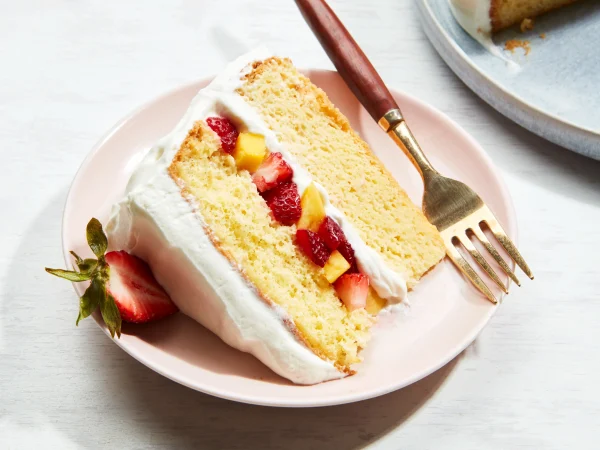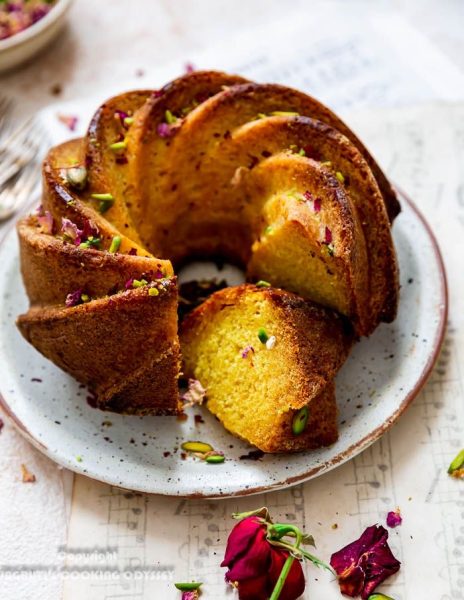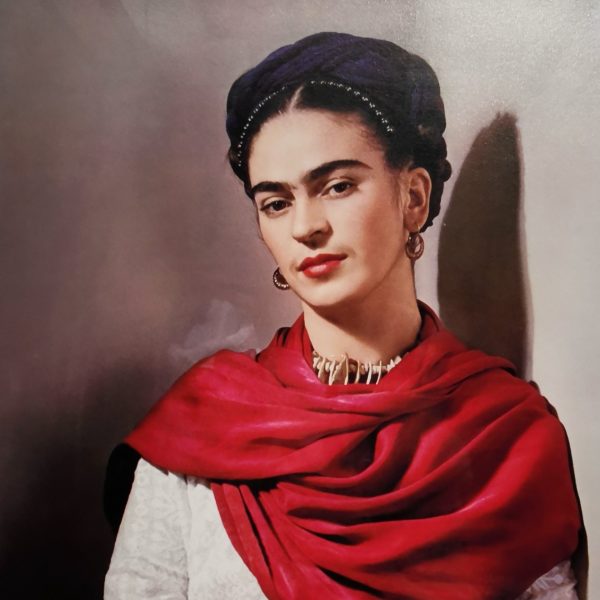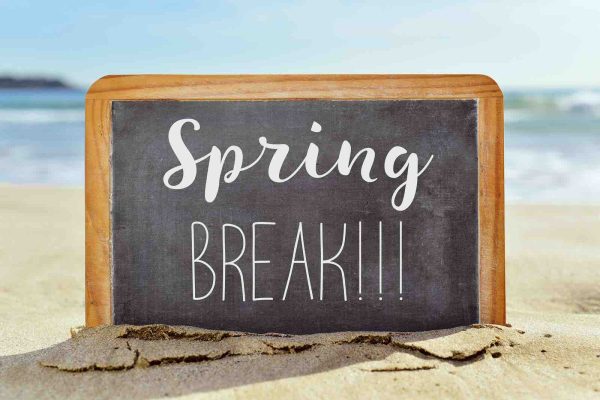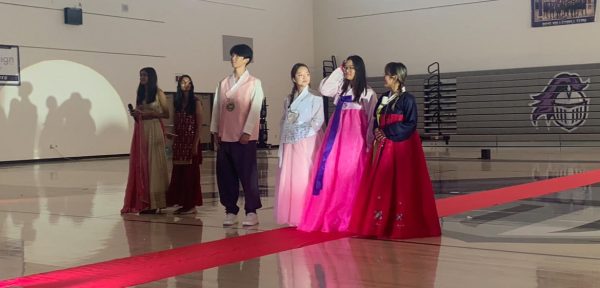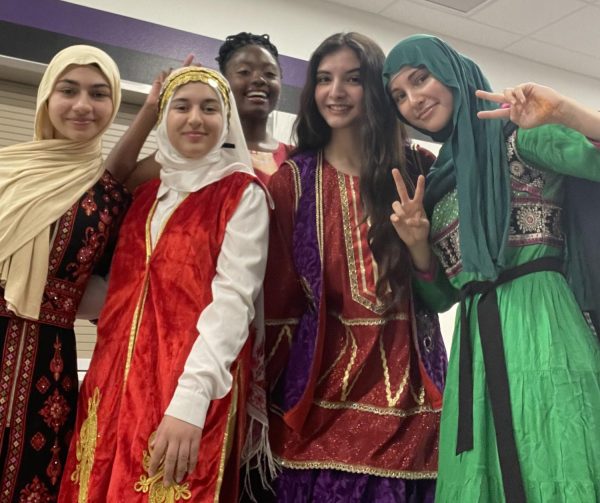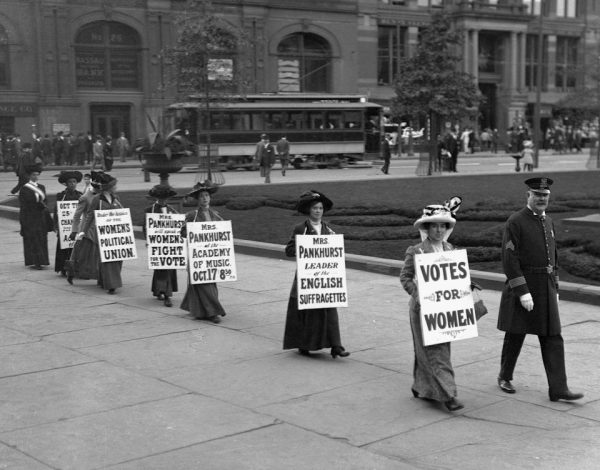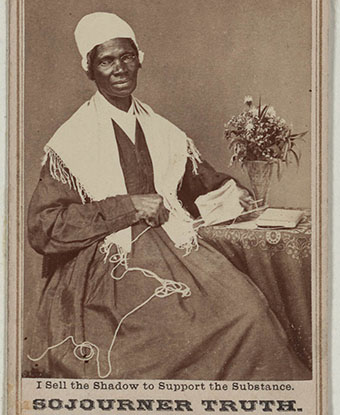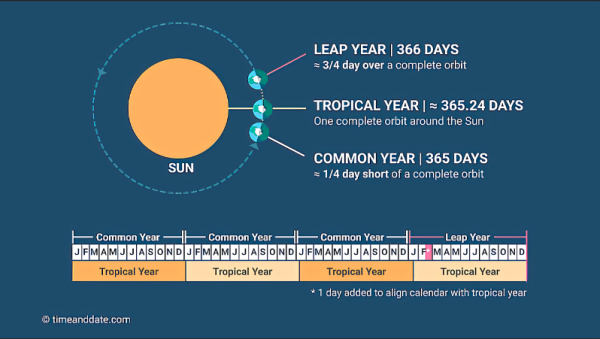Hanukkah: A Holiday of Survival and Celebration
December 25th, Christmas day. While many may know that legendary date as the most joyous, jolly, and capitalistic time of the year, it never meant a whole lot to me. If anything, it was just a day for me to be lonely, bake cookies, watch Jeopardy, and eat Chinese food at midnight. Well, now that Alex Trebek is permanently off the air (rest in peace), what’s a girl to do? She looks forward to Hanukkah, of course! Coming from an entirely Ashkenazi Jewish family, we have our own holiday traditions that, while fun, place meaning upon the holiday as a whole. So, today, I want to take the time to explain to you, my wonderful audience, what Hanukkah is all about, the traditions we uphold, and why our culture must fight harder than ever to stick around.
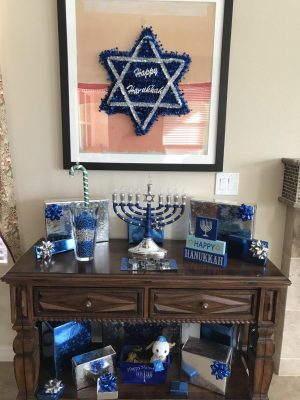
What exactly is Hanukkah?
I’m assuming you’ve probably seen a large candle holder with nine holes in the homes of most Jewish families. Well, it’s meaning is majorly significant to the purpose of the holiday! In 2 century BCE, the Seleucid Greek empire ruled Jerusalem, the most holy city for Jewish people back then and even today. The king at the time, Antiochus IV Epiphanes “outlawed Jewish practice and defiled the Jewish Temple in the city by installing an altar to Zeus Olympios and sacrificing pigs” (Forgasz). Soon enough, a Jewish rebel force known as the Maccabees fought and regained control of the Temple, tearing down any signs of Hellenistic faith and creating a new altar. However, a miracle occurred before their eyes as “there was only enough oil to keep the Temple’s menorah, one of its most important ritual objects, burning for one day. But the flame stayed alight for eight days, until a new supply of oil could be found – the basis for the eight-day celebration of Hanukkah” (Forgasz).
Another interesting aspect of Hanukkah is that it never truly lies on the same eight days every year. As opposed to our Gregorian calendar, Hanukkah goes along with the Hebrew, lunisolar (both the Sun and the Moon) calendar. Specifically, Hanukkah will always happen on the 25th day of Kislev. So, this year, it’s from December 10th to December 18th
OK…so what do you do on Hanukkah?
I’m so glad you asked! Using the candle holder mentioned earlier, the menorah, one candle is lit every night at sundown for the proceeding eight days by using a shamash or “helper” candle, which resides in the middle hole. A ritual blessing is also said by the family; in our case, my grandma and I follow it with a traditional song in Yiddish. It’s also become customary to exchange gifts with those you love on the first and eighth night!

Since oil holds such an important place within the event, why not incorporate it elsewhere? If you ever find yourself celebrating Hanukkah with your Jewish friends or family, you must try some latkes! Commonly known as potato pancakes, these fried, flat potato dishes are delicious, especially when dipped in apple sauce or topped with other vegetables. There’s also homemade Challah, or braided sweet bread. When I tell you I’ve been addicted to this stuff since I was an infant, I’m not lying! Fun fact, it’s the best for French toast if you have any left.
While there are rituals and food, there is a certain game that always gets people out of their seats and into the “gambling” ring. This, my friends, is a friendly game of dreidel. Using a four-sided top with sides labelled as gimmel (ג-take the whole pot), hey (ה-half of the pot), shin (ש-place a coin into the pot), and nun (נ-none) respectfully, you and a group of others are fighting for a pot of coveted chocolate, gold coins (known as gelt). I must warn you though, when all the latkes are gone, it can and will get personal.
Keeping the culture alive
While Hanukkah may seem like all fun and games, every Jewish person is vividly aware of the hardships that have plagued our belief for centuries. Antisemitism, or hatred for someone based on the fact that they are Jewish, has just recently been considered a hate crime within the United States. According to the Jewish Virtual Library (which used FBI hate crime statistics), 60% of religious hate crimes occurred towards those of the Jewish faith in 2019. Antisemitism has never stopped after the Exodus, after the Inquisitions, and after Hitler’s reign. Even now, synagogues here and around the world are burning and rabbis are being shot; hateful, alt-right groups are still walking the streets legally, creating the same fear that the Gestapo has back in 1940s Germany. This should not be occurring in the 21st century.
So, this holiday season, I urge you to think of your Jewish friends, families, and anyone else. Wish them a happy Hanukkah, ask questions, and let Jewish voices be heard. Celebrate safely and look out for one another. Have a wonderful holiday season, Knights.
Sources:
Federal Bureau of Investigation. “Anti-Semitism in the United States: Statistics on Religious Hate Crimes.” Jewish Virtual Library, Federal Bureau of Investigation, 1996, www.jewishvirtuallibrary.org/statistics-on-religious-hate-crimes#archive.
Forgasz , Rebecca. “The Story of Hanukkah: How a Minor Jewish Holiday Was Remade in the Image of Christmas.” The Conversation, The Conversation, 22 Dec. 2019, theconversation.com/the-story-of-hanukkah-how-a-minor-jewish-holiday-was-remade-in-the-image-of-christmas-127620.
History.com Editors. “Hanukkah.” History.com, A&E Television Networks, 27 Oct. 2009, www.history.com/topics/holidays/hanukkah.

